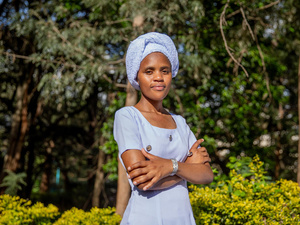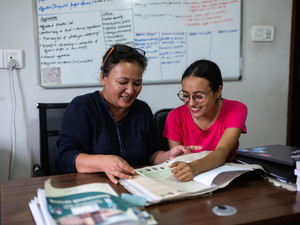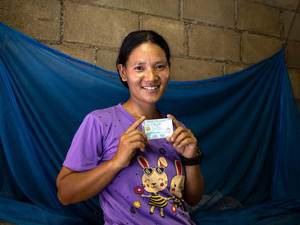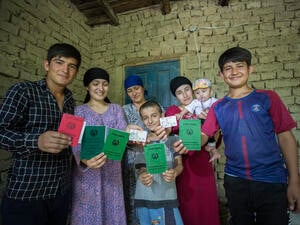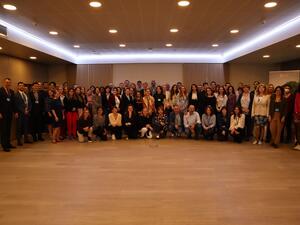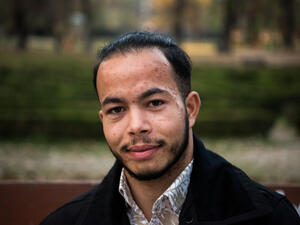Feili Kurds in Iran seek way out of identity impasse
Feili Kurds in Iran seek way out of identity impasse
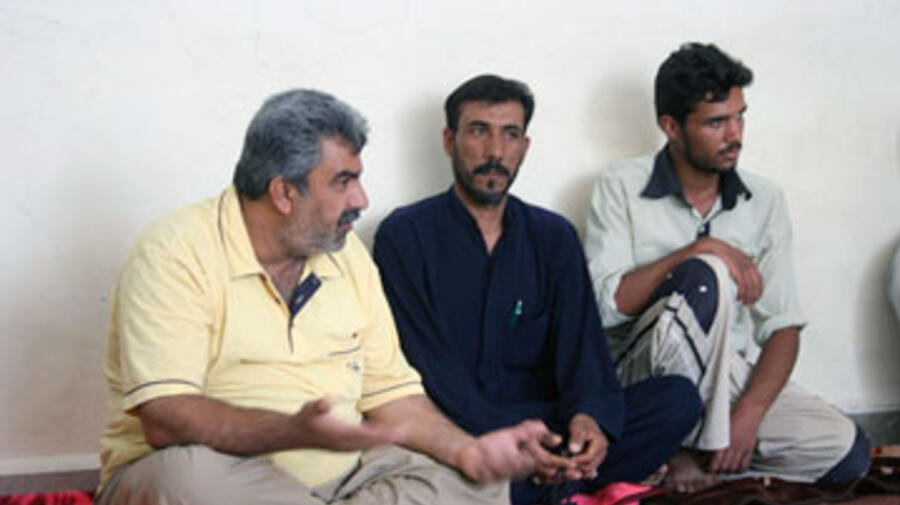
A group of Feili Kurds discuss their concerns at a recent meeting with UNHCR staff.
JAHROM CAMP, Iran, May 28 (UNHCR) - They were expelled from Iraq nearly 30 years ago, accused of not being Iraqi. After decades of exile in Iran, it seems like thousands of Feili Kurds now have a chance to return home and restore their Iraqi nationality. But not everyone is convinced.
"We are like ice thrown out to melt in the sun. Everyone knows that we have been oppressed, but the world is not paying attention," complained Jasim Kurt Feili, a representative of the Feili Kurd community in Jahrom camp in Iran's southern province of Fars.
The Feili Kurds say they originated in the Zagros mountain range of Iran. For centuries, they lived on both sides of the Iran-Iraq border in the regions of Khuzestan and eastern Iraq. Unlike the Sunni Muslim Kurds of northern Iraq, Feili Kurds are Shiite Muslims. Generations ago, their ancestors moved to Iraq and integrated successfully with local communities.
However, under former Iraqi President Saddam Hussein's Baathist regime in the 1970s, the Feili Kurds were accused of being Iranian, stripped of their nationality and expelled from the country. Their expulsion continued through the 1980s, over the course of the Iran-Iraq war. They became stateless, or without a nationality and unable to enjoy the rights and benefits accorded by a state.
At its peak, there were estimated to be several hundreds of thousands of Feili Kurds in Iran, living in the border provinces of Ilam and Ahwaz, as well as further inland, in camps like Jahrom, also known as Dastgheib camp.
Some 760 in Ilam were able to obtain Iranian citizenship after a complicated process, while the general number has dropped in recent years as many repatriated to Iraq after the fall of Saddam. Today there are believed to be some 7,000 registered Feili Kurds remaining in Iran.
Summing up their dilemma, Jahrom Camp Manager Gholamneza Ghasbarian said, "When they go back to Iraq, people say they're Iranians. But here, people say they're Iraqis and should go back. In Iraq, they face many problems - first there's the insecurity. Also, they've been in exile for so long, they have no contacts, no jobs and no homes to go back to."
In 2005, the new Iraqi Constitution stated that Iraqis who had been stripped of their nationality could now apply to restore it, together with their rights and property. This seemed like the legal solution to the Feili Kurds' woes, but not everyone is optimistic.
"We've survived the Saddam regime, when we were thrown into acid pools," said Kurt Feili. "But you can't separate the past from the present. There's no trust between us and the government - old or new. There's no way we can return, for security, political and sectarian reasons."
He claimed some friends had repatriated to Iraq, only to be given identity cards of a different colour from normal Iraqis - a possible basis for discrimination. In other cases, such as in the Iraqi governorates of Missan, Wassit and Karbala, the process of reacquiring nationality has reportedly been long and complicated.
Without nationality certificates, returnees face problems accessing basic services such as health care, education and employment. Their freedom of movement is also limited.
According to the Feili Kurds of Jahrom camp, resettlement to a third country is the only way out. "We're not asking for resettlement because we come from a poor country. After all, Iraq has oil. What we're looking for is security and stability for our children," Kurt Feili insisted, his face flushing in exasperation. "We've had embassies coming to visit and promising to help. But it's been 28 years and we're still here."
By Vivian Tan in Jahrom Camp, Iran

